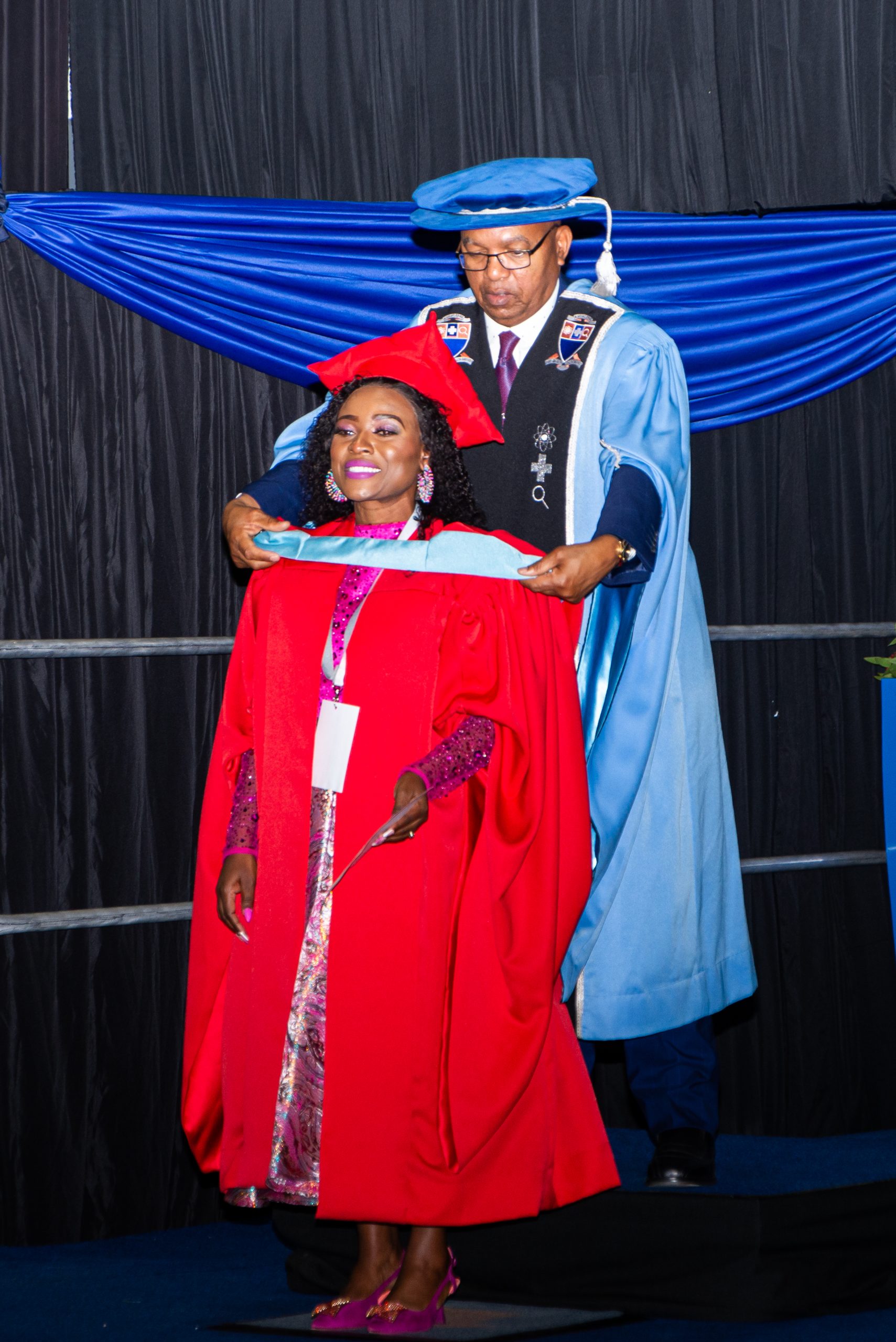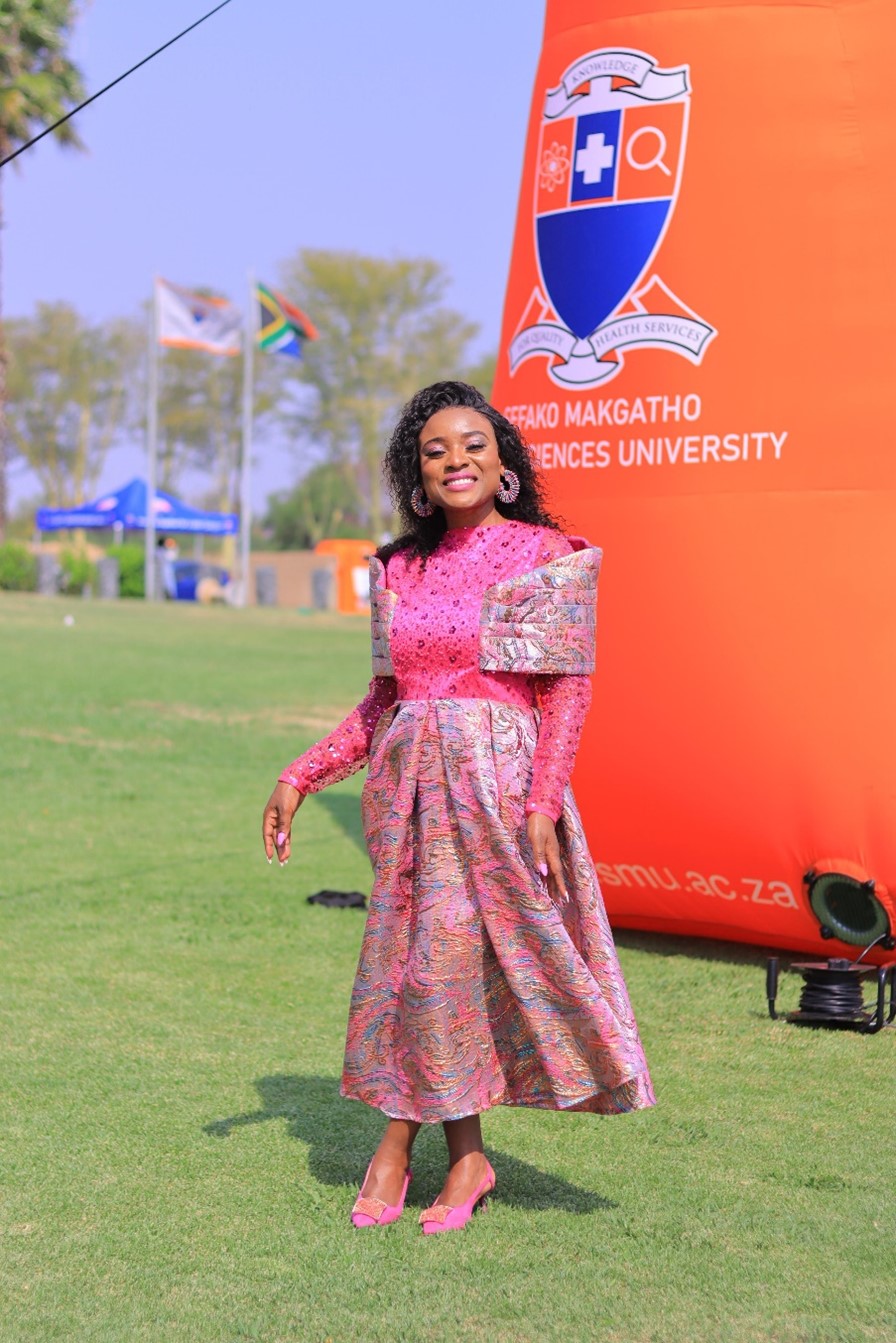Dr Mohora Feida Malebatja is a public health lecturer, water and environmental scientist, and a researcher driven by a simple conviction: “Good science must solve real problems.”
 Her career began when the Department of Water and Environmental Affairs awarded her a bursary for her undergraduate and postgraduate studies. That investment set her on a path through senior government roles, including Chief Development Expert in Water Boards Oversight and Manager of Water and Sanitation at the municipal level, before she transitioned into academia.
Her career began when the Department of Water and Environmental Affairs awarded her a bursary for her undergraduate and postgraduate studies. That investment set her on a path through senior government roles, including Chief Development Expert in Water Boards Oversight and Manager of Water and Sanitation at the municipal level, before she transitioned into academia.
Her decision to pursue public health was inspired by her realisation that effective water and sanitation services are not just about infrastructure—they are about protecting human lives. “Every pipe, every treatment plant, every system we build must serve the ultimate purpose of safeguarding health,” she reflects. This understanding deepened during her years of community engagement on projects such as the upgrading of wastewater treatment plants in North West Province and long-term studies addressing acid mine drainage in Gauteng.
Today, as a lecturer in Environmental and Occupational Health at Sefako Makgatho Health Sciences University (SMU), she combines her technical background with her passion for research, teaching, and postgraduate supervision.
But her most significant contribution to date stems from a very personal experience. During her first pregnancy, Dr Malebatja developed unusual cravings for clay soil. Discovering that many women shared this behaviour, known as geophagy, she became curious about its causes and consequences. “At first, I thought it was just me. Then I realised how many women were struggling with the same cravings—and how little we understood about it,” she recalls. That curiosity eventually became the subject of her doctoral research.
Her PhD at SMU examined an environmental health and promotion intervention programme to reduce geophagy among women of childbearing age in the Tshwane District. She found that geophagy, medically defined as a form of pica—the craving and consumption of non-food substances—is widespread among pregnant women across all social groups. While often viewed as a cultural or harmless practice, her research revealed its hidden dangers.
Laboratory analysis of the clay soil consumed by women detected 18 trace elements, including toxic substances such as arsenic and lead. These were linked to serious health risks ranging from iron-deficiency anaemia and fertility complications to organ damage and even cancer. “What shocked me most was how something seen as ‘natural’ or even ‘traditional’ could carry such devastating health risks,” she says. Beyond the chemical threats, the practice of geophagy is linked with the increased risk of maternal, neonatal and childhood morbidities and mortalities, making it a pressing public health concern.
 Her intervention programme combined health education, community engagement, and nutritional strategies such as promoting iron-rich foods and supplement adherence. Early results indicated that it not only raised awareness but also encouraged behavioural change, giving women practical tools to replace risky practices with safer alternatives.
Her intervention programme combined health education, community engagement, and nutritional strategies such as promoting iron-rich foods and supplement adherence. Early results indicated that it not only raised awareness but also encouraged behavioural change, giving women practical tools to replace risky practices with safer alternatives.
Malebatja’s PhD journey was not without challenges—bureaucratic delays, shifting supervisors, and even conducting research while pregnant. Yet she persevered. In spite of all the obstacles she faced, she remained positive and determined. Her persistence paid off, with multiple articles published and a policy brief urging the South African government to integrate geophagy education into antenatal care services.
Looking ahead, she aims to expand her research into environmental hazards, mental health, and climate change, while scaling her intervention programme to reach more communities across South Africa and beyond.
Her message is clear and direct: “Geophagy is not harmless. It poses severe health risks for women and their babies. Communities, healthcare workers, and policymakers must work together to address it through education, early detection, and supportive interventions.”
As she reflects on her journey, she extends deep appreciation to her supervisors, Prof. Mokgatle and Prof. Oguntibeju, the Malebatja family, her husband, and her children for their unwavering support.
Dr Malebatja’s work is a reminder that the most impactful research often begins with lived experience—and that science, at its best, transforms lives.
By Tumelo Moila



